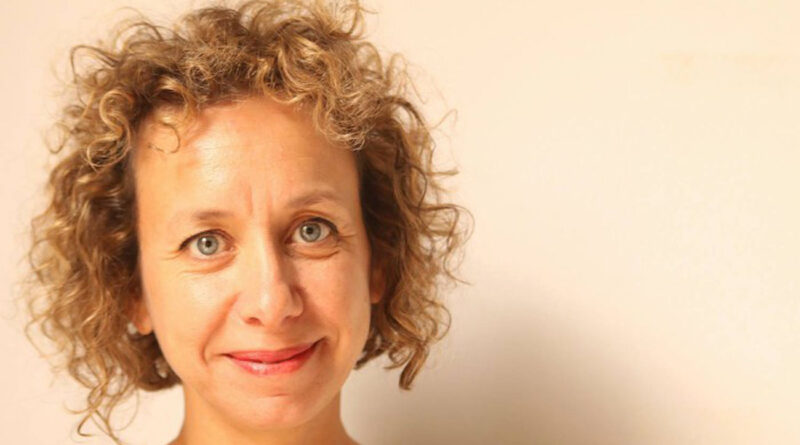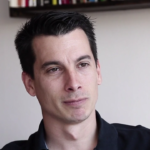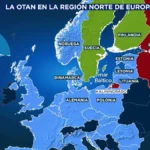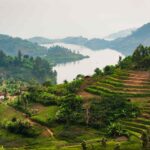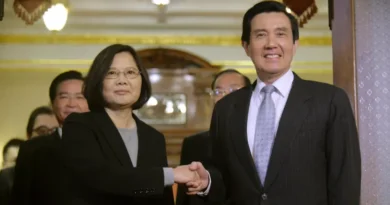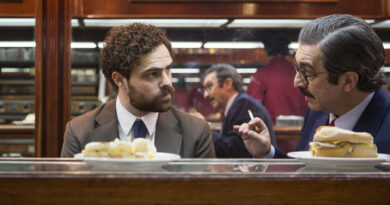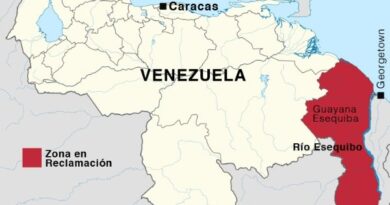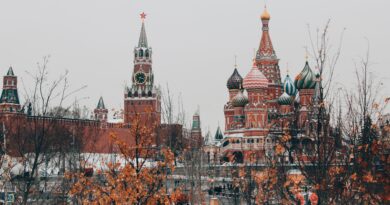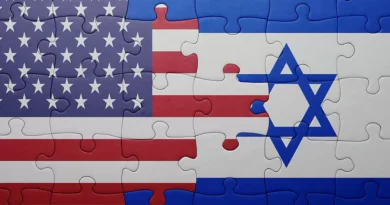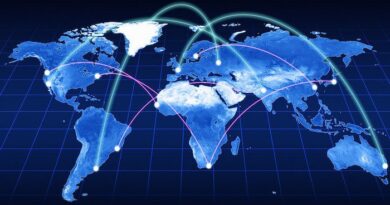Laura Lanuza, spokesperson for Open Arms: the Mediterranean is a great mass grave for migrants
JAYRO SANCHEZ
Laura Lanuza is one of the most veteran activists and the head of communication for the humanitarian organization Open Arms, which was born in 2015 by the hand of the Spanish lifeguard and businessman Óscar Camps with the aim of protecting the lives of people stranded in international waters who are fleeing war, persecution or poverty. We spoke to her about the rise in migrant deaths in the Mediterranean Sea.
Since the beginning of this year alone, 327 people have lost their lives trying to cross the Mediterranean to reach Europe. The figure is horrifying, but it only reflects a small part of the great mortality rate that its waters have contained for years. Can the exact number of victims be calculated?
It is not impossible. We know that in the last ten years more than 26.000 have died, but it is very difficult to give a precise number of deaths because there are times when the body does not appear and when we cannot obtain direct testimony about the death of a certain individual. .
Likewise, there are cases in which the survivors of the shipwrecks tell us that their boat sailed together with others with the same destination, although the remains of the latter are never discovered. The sea swallows the bodies. In any case, the number of deaths must be very high.
WHEN THERE ARE NO IMAGES, THE DEATHS BECOME INVISIBLE. THEY DON'T HURT
The last rescue we have heard of was on February 26 off the southern Italian coast. 200 people were traveling on a schooner that collided with a sandbank. The coastguards were only able to save 80. Why hasn't this event monopolized the front pages of the main Spanish newspapers?
It is true that, both on Sunday and Monday, the main national newspapers have not prioritized their publication over that of other events. However, some media have opened their newscasts with the broadcast of this tragedy.
The issue has been gaining greater media importance as the waters spat out more corpses. The problem is that this is just one of the many shipwrecks that the Mediterranean suffers daily. And, when there are no images, the deaths become invisible. They don't hurt.
The fact that the bodies washed up on the beaches along with the remains of the ship, among which there were feeding bottles and baby clothes, has shocked Italian journalists... It is a pity that in Spain it did not have such an impact.
There it has caused a lot of indignation, since it shows the serious consequences of the legislation applied by the Government Italian far-right.
Its Prime Minister, Georgia Meloni, has declared that he feels "deep pain" for the victims. Despite this, she is determined to hinder rescue efforts in the maritime areas that are under the sovereignty of Rome. Because?
Because it uses the pain of the most vulnerable people at sea as a political tool. Since the days of Matteo Salvini, anti-immigration discourse has been used to get votes. Far-right propaganda is based on the strategy of making people fearful of the unknown.
For this reason, their representatives affirm that the people who are crossing the Mediterranean in these conditions want to invade Italy. So many fallacies and hoaxes only serve to secure their seats. They are politicians, and they are passing through. The sad thing is that thousands of lives will be lost. It is clear that the Crotona shipwreck will not be the last to occur.
The legislation promulgated two weeks ago by the Italian Executive affects OpenArms, as it is an NGO. In what way does he do it?
It prevents us from doing our job, which is to protect the lives of the most vulnerable at sea. The moment any of the assets of the organizations that we operate in Italian waters make a salvage, they are automatically assigned a port that is as far away from southern Italy or Sicily as possible.
Thus, Meloni and his ministers make sure that those of us who are dedicated to rescuing migrants are out of the arrival area of their boats for at least eight days, between going and coming back. That also supposes a significant economic wear and tear on us.
In the end, those who bear the worst part are the people who travel in the boats, since the sea journey is the last stage of a very long journey plagued with pain, torture and all kinds of abuses that they are forced to do. It seems to me very serious that unnecessary suffering is inflicted on them for political interests...
GOVERNMENTS ARE BUILDING WALLS EVER TALLER
Several of the Member States of the European Union (EU), and even the organization itself at a general level, do not seem to be too concerned about the deaths of migrants in the Mediterranean. Why don't they do anything?
Actually, yes they are, but for the worse. Via Italy, the EU is using a Libyan militia to return migrants to the very hell they are fleeing from. Governments are building ever higher walls to separate North Africa from Europe.
What measures would you demand from the European authorities?
The execution of a civil or military rescue operation that has the protection of life as the highest priority. Italy launched many years ago the Operation Mare Nostrum, but it had a very high cost. When he asked for help to continue with her, Europe turned its back on him.
In its place, it started another of a military type that had various names: Sofia, Triton... What remains of it are the planes of the European Border and Coast Guard Agency (Frontex), which can't do much from the air if there are no ships at sea.
Until 2018, the NGOs that operated at sea were under the coordination of the Italian Coast Guard. Although today it may seem like a fantasy, it was its members who pointed out to us the boats in danger. Thus, we could go to rescue them.
Everything changed when Salvini came to power. From that moment on, they have left us deaf and blind. Although they have the tools to control and scan the entire sea, they do not give us access to that information. Sometimes they even lie to us.
What are the main migration routes? towards Europe?
The people they rescued in Sicily last Sunday had embarked in Turkey. The vast majority came from countries like Iran, Afghanistan or Pakistan, whose bloody conflicts we are well informed about through the media. They could only get out of there illegally, through mafias. This shows that the safe and legal migration pathways we have been calling for for so long do not exist.
As for the routes, the most important right now is the one in the central Mediterranean. The boats leave from Libya or Tunisia, and, for a few years, also from Turkey. Another very active one is that of West Africa, which ends in the Canary Islands.
The mafias move much faster than the European governments. What they do is pay money to third countries to control their borders without requiring them to respect human rights. See the examples of Morocco, Libya or Tunisia, among many others. This makes it easier for gangsters to look for cracks in the borders.
THE SAHARA DESERT IS ANOTHER GIGANTIC GRAVE FOR MIGRANTS
Are the organizations dedicated to human trafficking the ones that manage the routes?
We don't have specific names. Only the testimonials of the people who tell us about their trip. We know that traffickers play with the desperation of immigrants in exchange for high profits, as well as that they do not offer them any kind of guarantees. Those who reach the sea are already true survivors, because their journey begins kilometers away. Many of them already lose their lives on the way. If the Mediterranean is one big mass grave, the Sahara desert is another gigantic tomb for them.
I know that it may seem like a very recurring question, but why do migrants decide to come under these conditions?
The ultra-right spreads the story that the NGOs that are at sea cause a 'call effect'. But we are not a magnet. A large part of these people are fleeing the 65 armed conflicts that are currently taking place in the world.
When your house is bombed, you are persecuted for your sexual condition or religion, or they are going to cut your body, you want to leave. And if they do not provide you with legal and safe ways to request protection or asylum from your country of origin, you are going to put yourself in the hands of the mafias.
In addition, article 13 of the Universal Declaration of Human Rights clearly states that "everyone has the right to move freely and to choose their residence in the territory of a State, and every person has the right to leave any country, including their own, and to return". Therefore, we do not have to ask anyone for his motives.
However, the imaginary that migrants have of Europe is not the one they will find after an irregular arrival. They do not find work and opportunities, but rather a fence, a foreign detention center (CIE) and, many times, deportation.
Earlier you explained that your job is to protect the lives of the most vulnerable at sea. What materials do you have for it?
Currently, we own three boats. Only two are active, because the expense is enormous. The OpenArms I is our latest acquisition, and it's ready for the mass salvage. It is a 20-year-old ship with a capacity for 1.000 people and 26 hospital beds. Its facilities not only facilitate rescue tasks, but also restore dignity to the people we rescue, accommodating them as much as possible on the journey they make with us. In addition, we have four very fast inflatable boats to reach the places where the boats sink.
The OpenArms I is right now in the port of Barcelona. They have not given us any facilities so that the ship can go sailing. Administrative obstacles have caused us to be very late, but we hope to be out in a couple of weeks at the most.
Who is involved in the daily operation of the ship when it is at sea?
Our asset belongs to the Merchant Navy, has a Spanish flag and, following the corresponding legislation, its minimum crew is made up of about 14 people: engine personnel, captain, first officer, second officer, cook, sailors...
On the other hand, there are 14 other volunteers to carry out rescue missions: doctors, nurses, a midwife, lifeguards, boat skippers and a cultural mediator. The latter is important in terms of psychological and communication care, since the people we rescue belong to a lot of different countries and cultures.

